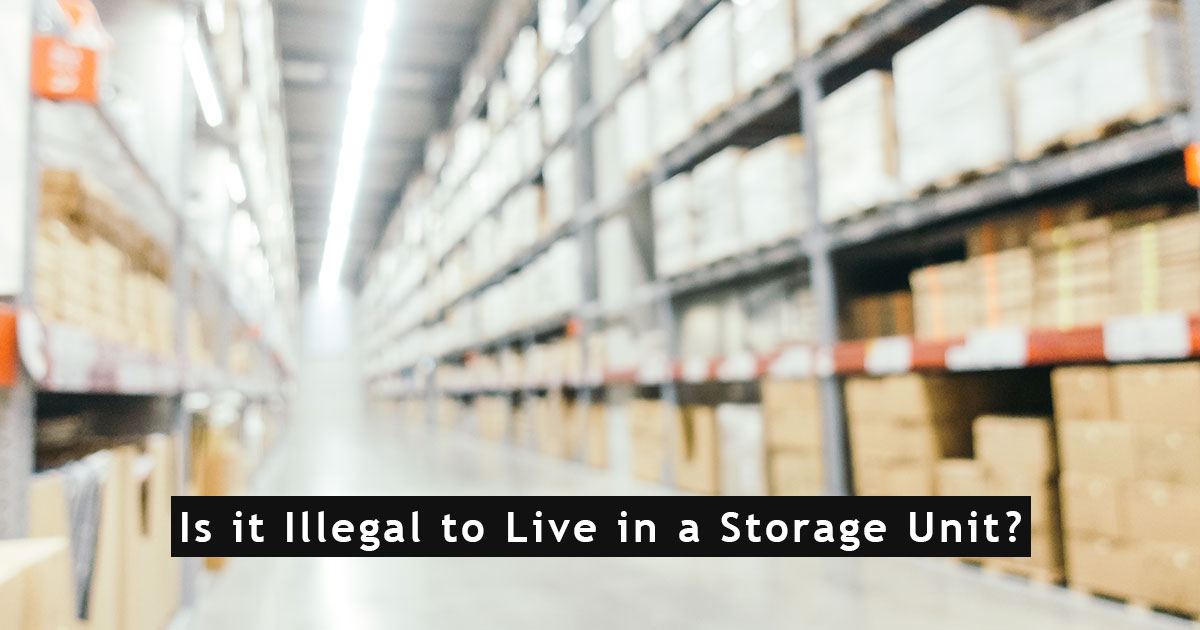In the quest for affordable housing solutions, some individuals may consider unconventional options, such as living in a storage unit. This choice, driven by various circumstances, raises significant legal and safety questions. The legality of residing in a storage unit is governed by a myriad of regulations and codes in the United States, which aim to ensure the safety, health, and welfare of the public. This article delves into the legal framework surrounding the use of storage units as living spaces, highlighting the consequences of such decisions.
Zoning and Housing Regulations
At the core of the issue are zoning and housing regulations, which are established by local governments to designate specific uses for buildings and land. Storage units fall under commercial or industrial zoning laws, which do not permit residential use.
“Most localities classify self-storage facilities as commercial properties, explicitly prohibiting their use for residential purposes to maintain public health and safety standards.”
Violating zoning laws by living in a storage unit can lead to eviction, fines, and in some cases, legal action against both the inhabitant and the storage facility operator.
Building and Fire Codes
Building and fire codes, designed to ensure the safety of structures for their intended use, further restrict the ability to legally reside in a storage unit. These codes specify requirements for living spaces, including ventilation, windows, electricity, plumbing, and means of egress in case of fire.
- International Building Code (IBC) and International Fire Code (IFC): “Living in spaces not compliant with IBC and IFC requirements for habitation can constitute a violation, resulting in penalties and mandatory vacate orders.”
Storage units typically lack these essential features, making them unsuitable and illegal for residential occupancy.
Health and Safety Concerns
The decision to live in a storage unit also raises significant health and safety concerns. The lack of proper ventilation, exposure to hazardous materials, and absence of sanitary facilities pose serious risks to individuals.
Health Department Regulations: “Occupying a storage unit as a residence may violate health department regulations, exposing individuals to legal actions and health risks.”
Lease Agreements and Storage Facility Policies
Storage facility lease agreements explicitly prohibit using the rented space for residential purposes. Violating this clause can result in immediate termination of the lease and loss of the storage space.
- Lease Agreement Clause: “Tenants agree to use the storage unit solely for storage purposes as outlined by the facility’s policies, acknowledging that residency is strictly forbidden.”
Legal and Practical Implications
Individuals found living in storage units face various legal and practical implications, including eviction, potential legal charges, and difficulties in finding future housing. Moreover, storage facility operators may face fines and legal challenges for allowing or not adequately preventing such uses.
Conclusion
Living in a storage unit is illegal across the United States, violating zoning and housing regulations, building and fire codes, and lease agreements. While the affordability crisis may push some toward unconventional living arrangements, the legal system emphasizes safety and health standards in defining permissible housing. Individuals in need of housing assistance are encouraged to explore legal and safe options through local housing authorities and assistance programs.
References
- International Building Code (IBC): https://codes.iccsafe.org/codes/i-codes
- International Fire Code (IFC): https://codes.iccsafe.org/codes/i-codes
- Local Zoning and Housing Regulations: For specific local regulations, consult your city or county government website.









Leave a Reply